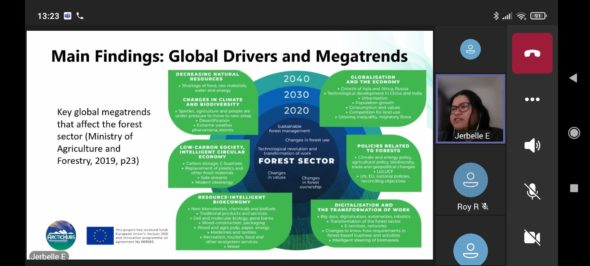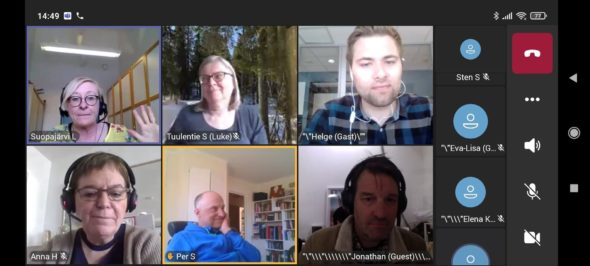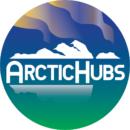In the Arctic region, a new and exciting chapter has begun with the release of the preliminary results of Work Package 1 (WP1) of the ArcticHubs project, which started its research action a few months ago.
The H2020 funded project started back in August 2020. One of the primary tasks earmarked for the initial phases of the project is to identify and assess the economic and geopolitical influences affecting the development of sectors and livelihoods throughout the Arctic.
As WP1 coordinator, Leena Suopajärvi, Senior Researcher and Lecturer at the Faculty of Social Sciences of the University of Lapland in Finland, explains:
with the research within Work Package 1 we are looking to unpack the project’s strap line “global drivers, local consequences”.
The dynamic interplay of global and local conditions – sometimes merged together as the term glocal – forms the broad backdrop to the dizzying array of research, and search for co-produced solutions, that will emerge from the ArcticHubs project.
WP1 is also looking to disaggregate such global ‘drivers’ and to pinpoint the megatrends, trends, weak signals, and ‘wild cards’ shaping current and future developments.
Megatrends
Impacts and responses to climate change, at the heart of ArcticHubs research, are certainly amongst the main megatrends having a fundamental impact on all of the different industries active in the region. But in line with the rationale underpinning the project, there is no singular driving force identified. Instead, attention is paid to alternative combinations of different economic, political, as well as cultural and social forces, that influence and steer developments in the Arctic.
Once informed of the principal influences stemming from global drivers, the project research will dive deep in to the local consequences of such forces, with a particular focus on how they are experienced on the ground and around the 21 diverse hub settings included in the project research.

Drawing on an extensive survey of policy and strategy papers, and complemented by the direct voices of key stakeholders interviewed by the researchers, the team in WP 1 has already started to map these combinations of global drivers.
WP1 research covers perspectives and experiences stretching across the different countries, regions and economic sectors represented in our project consortium of high north partners and communities. Even though the programme of work is at an early stage, a number of patterns and perspectives are starting to emerge.
Preliminary patterns and perspectives from WP1 research
The traditional placing of the Arctic as a region on the periphery of interests and influences, is quite inaccurate
Far from being characterised by their peripherality, evidence emerging from WP1 analysis suggests that the ArcticHub locations could more accurately be described as ‘hotspots’. In these sites, long-standing forms of livelihood vie with newly emerging sectors and opportunities for acknowledgement and priority within contemporary policy strategies.
A further early marker flags up sustainability principles as much more than rhetorical or theoretical abstracts – rather, they are considered urgent and practical necessities, not only by local communities and consumers, but also by influential funders and investors.
Going forward, the ArcticHubs research teams have been encouraged by the early interest in the project shown by their interviewees, whose comments include:
“It’s good to step back and think about the big picture” and “really valuable to take time to think about the interwoven interests that will influence our future directions and decisions”
Gathering and listening to diverse Arctic voices is a critical aspect of the close work between ArcticHubs researchers and the hub-based communities and stakeholders of the region.
In this way the solutions that are arrived at, really do come through a process of co-creation.

